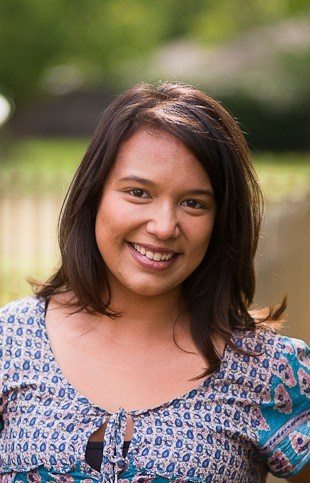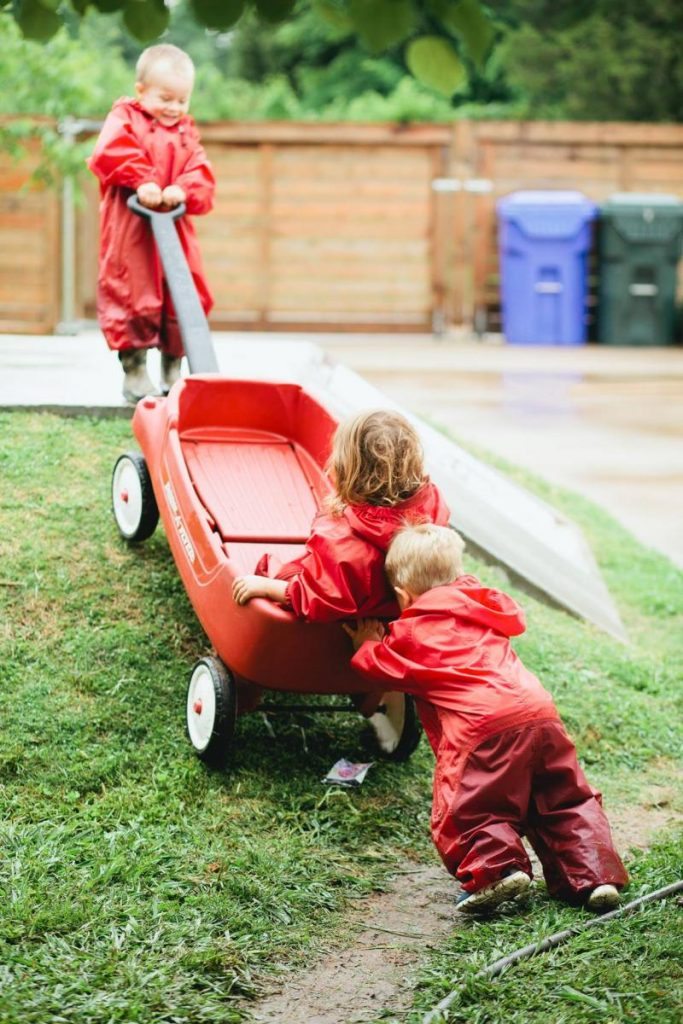When I first started my LifeWays home program, I was terrified of Parent  Nights! But I knew that parent education was an integral part of building the bridge between home and school, and I figured I better get to work on being less afraid of them. After a lengthy conversation with my dear mentor, Faith Collins, I believe we have come up with the perfect recipe for Parent Nights. I now look forward to these gatherings, and the butterflies have all gone away! The parents also look forward to them, and they are full of gratitude for the opportunity to be in community with one another.
Nights! But I knew that parent education was an integral part of building the bridge between home and school, and I figured I better get to work on being less afraid of them. After a lengthy conversation with my dear mentor, Faith Collins, I believe we have come up with the perfect recipe for Parent Nights. I now look forward to these gatherings, and the butterflies have all gone away! The parents also look forward to them, and they are full of gratitude for the opportunity to be in community with one another.
1. Schedule time for sharing. At the beginning of each Parent Night, we go around the circle answering one question: One thing that is going well (in parenting/family life), and one thing that is challenging. You can do this “popcorn” style or simply go around the circle. I will typically go last, after ensuring that everyone who wants to speak has gotten a chance to be heard. After everyone has shared, we often glance at the clock to find that two hours have passed, and my parent group is tiny (4-6 parents usually attend).
If their sharing comes with a direct question, I will give suggestions based on my experience. For the most part, I have observed that parents these days don’t really want advice (there’s enough of that on the Internet); they want support. So while my observation and experience with a child may be one way, I acknowledge and respect that his mom’s observations and experiences may be different. I always make sure to preface any advice with: “This is what helps us here. I cannot guarantee that your experience will be the same, but you could try it if you wanted to.”
2. Share something of the children’s day. At our last Parent Night, I showed a lengthy video of the children engaged in deep, quality play. Through the video, I got to point out several moments that highlight why we do things the way we do in LifeWays. For example, the video depicted several moments of little struggles between children over toys, disagreements about the game they were playing, etc. Since the children in my program have learned how to navigate conflicts with one another very well, they displayed excellent problem solving skills WITHOUT my help and WITHOUT violence. I made sure to pause the video and note to the group of moms (who were on the edges of their seats) that “See…if I would’ve stepped in and solved this for them, they would never have had to flex their problemsolving muscles!” The parents were highly impressed at seeing their own children be so capable, expressive, and resilient. Many of them expressed an interest in letting their child struggle a bit more than they had been, because they now had video evidence of their capabilities!
I don’t always share videos or pictures though. Occasionally it will just be a sweet little story or two. I sometimes will “save them up” if I know a parent night is coming. That way, all the parents can hear the story at the same time, and the connection between them and their children (who are now kind of “siblings”) is palpable and heartwarming.
Sometimes, I will simply share a fingerplay or seasonal song, or ask the parents if they have any beloved songs to share. After a bit of nervousness, even the most bashful parents are singing along!
Other times it will be an article. For our November Parent Night, I plan on sharing some articles and resources about sleep hygiene for adults and kiddos. This is a good way to disseminate valuable information in a way that is thoughtful and is more likely to stick with them. Posting an article on Facebook is one thing, but engaging in meaningful face-to-face discussion is another.
Since my group has skewed very young for the past couple of years, so if we have a festival coming up that involves a craft, I will enlist the parents as helpers. Last year, all the moms came together and folded up a Martinmas lantern for their children, with watercolors. The moms enjoyed “oooohing” and “aaaahing” over each child’s beautiful artwork. It took a lot of pressure off Miss Frances to assemble the lanterns, and the parents were glad to participate in bringing the festival together. Some moms added glitter and jewels to their child’s lantern, and I think they appreciated the chance to work with glitter again. Not many adults get the chance! The next morning, the children arrived at my house with all their lanterns sitting nicely up on the shelf in a row, and they knew their moms had been to my house while they were sleeping or having bath time. They had lots of sweet questions like “Maybe one night I could come with my mom to Parent Night? And you could tuck me in on my nap mat?”
3. Stay true to time. You’ll want to consult with the parents on a time that works well for everyone, so that you can avoid people straggling in late. In my program, all the parents all belong to a secret Facebook group where I can easily take surveys, post questions, share documents and photos, and post announcements. So at the beginning of each year, I take a poll and each parent chooses the best time of day/week for them, and we try to stick with that schedule the entire year.
Of course there will always be exceptions and reschedules, but I do try to make it so that the greatest number of people can participate with the least amount of disruption to their respective families. Typically ours are scheduled during dinner time, so I make sure to set out a plate of cheese and crackers in case someone has had to skip dinner.
Since sharing our parenting struggles can be so cathartic and valuable, we often spend more time than we intend on this part. This is okay, as long as we shave off some of the other activities to compensate. I try not to keep them out past our agreed-upon time…it has happened before, but it is a poor habit to get into. My dear mentor Cynthia Aldinger once told me that our angels are watching us and they are more helpful to us in our daily lives if we are impeccable with our time!
I sincerely hope this helps you start (or revive!) a Parent Night tradition in your program. I truly believe that providing excellent care to children is only a small part of what we do as LifeWays caregivers. Providing a sense of community and a bridge between home and school are equally important and necessary. For those of you who are struggling to connect with or engage your parent body, parent nights may be the perfect way to do that! It truly does take a village to raise a child, so get out there and bring your village together!

Frances Whalen is the primary caregiver at Redbud Play School, a LifeWays Representative Program in Norman, OK. She was born and raised in a small, rural town in Southeast Oklahoma, to which she partially credits her love and dedication towards slow, simple living. She earned a bachelor’s degree in Botany from the University of Oklahoma, focusing her studies on the interactions between ecology and agriculture.
After graduating, she found herself being inspired by the joy of children, and soon began working as a nanny for young children. She loved every minute of it! When she learned of Lifeways North America, she found a deep resonance with its guiding principles and wanted to become part of the movement to elevate the state of daycare in the US. She became a certified LifeWays caregiver shortly thereafter. Her heart was warmed by how brilliantly children thrived when these conditions were met:
Children were allowed to play for most of the day.
Caregivers were warm and loving.
The environment was home-like and inviting.
After teaching at Rose Rock School for three years, she became inspired to continue her work as a LifeWays caregiver in her own home. She now shares that home with her husband, two dogs, and two chickens. Having been inclined towards homemaking from a young age, she finds joy in knitting, gardening, animal husbandry and photography. She feels very blessed to have the opportunity to spend her days amidst the happy hum of children working and playing, and is eager to meet each new child who comes her way. She continues to further her professional development through reading, workshops, and child development classes.
